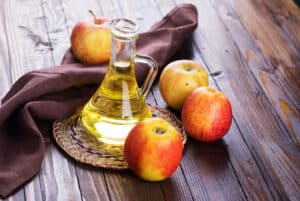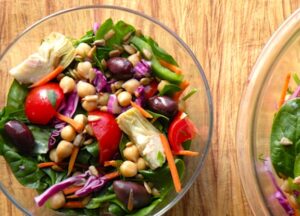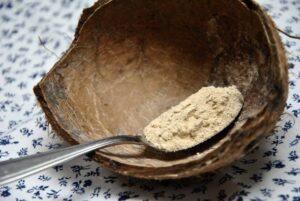It’s a longstanding belief that plant-based eaters must take vitamin supplements to gain all of the nutrients for vegans and their dietary needs. Fortunately, with modern access to a wide range of whole foods, that misconception about nutrients for vegans is far from true. From the outstanding omega-3 content of chia seeds to the iron in spinach, a thoughtful vegan lifestyle is synonymous with nutritious health. Check out our roundup of nature’s most abundant whole foods and how they can nourish your body with vital vitamins and minerals. Here are the top essential nutrients for vegans and where you can find them—without the supplements!
Omega-3 Fatty Acids
Consume omega-3 fatty acids to help prevent or treat heart conditions. There’s also evidence that they might be useful for cognitive function.
Omega-3 fatty acids are most commonly found in seafood, but seaweed, chia seeds, flax, soy, and walnuts all contain this essential nutrient, as well. Learn more about the health benefits of chia and flax seeds.
Vitamin A
Vitamin A promotes growth and development within the body, including teeth, skin, and eyes.
Naturally orange foods have the highest concentration of Vitamin A. Think carrots, sweet potatoes, cantaloupe, and various winter squashes.
B Vitamins
B Vitamins work wonders within the body, from boosting immune function to producing energy, to helping absorb iron.
You can find B Vitamins in an array of whole foods such as beans, potatoes, bananas, unprocessed whole grains, lentils, peppers, and molasses. Read more about B12 in a vegan diet.
Vitamin C
Everyone knows that Vitamin C is the cornerstone of good health, but do you know specifically how it works? Vitamin C is an antioxidant, iron absorber, and blood vessel strengthener, all in one!
You might be surprised to learn that Vitamin C is found in dozens of foods other than oranges! Test out a recipe with Brussels sprouts, or green and red peppers this week. Or, simply purchase kiwi, guava, cantaloupe, grapefruit, or strawberries to indulge in as a snack!
Vitamin D
Vitamin D is known for aiding in strong bone growth, which is essential to overall wellness. For a quick fix, give yourself a few minutes in the sun each day or spruce up dinner with an addition of mushrooms. Need more info? Learn more about Vitamin D.
Vitamin E
Vitamin E’s primary function is to promote healthy blood circulation. Fortunately, this crucial vitamin can be found in everyday items such as almonds, sunflower seeds, and tomatoes.
Vitamin K
Some people might not realize how important Vitamin K is to a functioning body. The nutrient helps aide the coagulation process of blood at the site of a cut or injury. Think of it as your body sealing itself off from external germs.
Vitamin K is easy to find in all of the standard leafy greens. Spinach, broccoli, kale, and Brussels sprouts are all wonderful sources. Here’s more about the health benefits of leafy greens.
Folic Acid
This little known nutrient is crucial for cell renewal, but it also helps expectant mothers with protection against birth defects.
You can find folic acid in plenty of vegan whole foods, ranging from asparagus and broccoli, to peas and cauliflower. A few other easy sources are citrus fruits, dark leafy greens, beans, lentils, beets, and peas.
Calcium
Calcium is an important nutrient that promotes strong bones and healthy teeth. Unfortunately, it’s easiest found in dairy products like milk and yogurt. Luckily, there are vegan options too, such as tofu and dark molasses. Need more information on plant-based calcium? Read about it here.
Iron
Thanks to iconic cartoon character Popeye, iron’s function is well known to help muscles grow stronger, but iron also helps blood stay healthy.
Everyone knows that spinach is a wonderful source of iron, but pumpkin seeds, soybeans, and lentils are all iron-rich foods as well.
Zinc
Zinc helps our bodies in so many ways, from boosting immunity to helping fertility. It’s most commonly found in seafood, but vegans can get plenty of zinc from spinach, cashews, and dairy-free dark chocolate.
Chromium
While not many people know about chromium, its function is incredibly important. It helps our cells absorb glucose, which in turn provides the body with energy. You’ll find it in unprocessed whole grains, herbs, and most vegetables.






Rhonda @ Change In Seconds says
Nice list! I prefer to get my nutrition from natural foods versus taking a supplement.
Wendy Rogers says
What is your professional opinion on Vitamin K2? I cannot imagine eating natto. Can we manage without supplements?
Nava says
Wendy, we can't give a completely professional opinion about that — this would be a good question for a Registered Dietician (an MD probably wouldn't know, either).